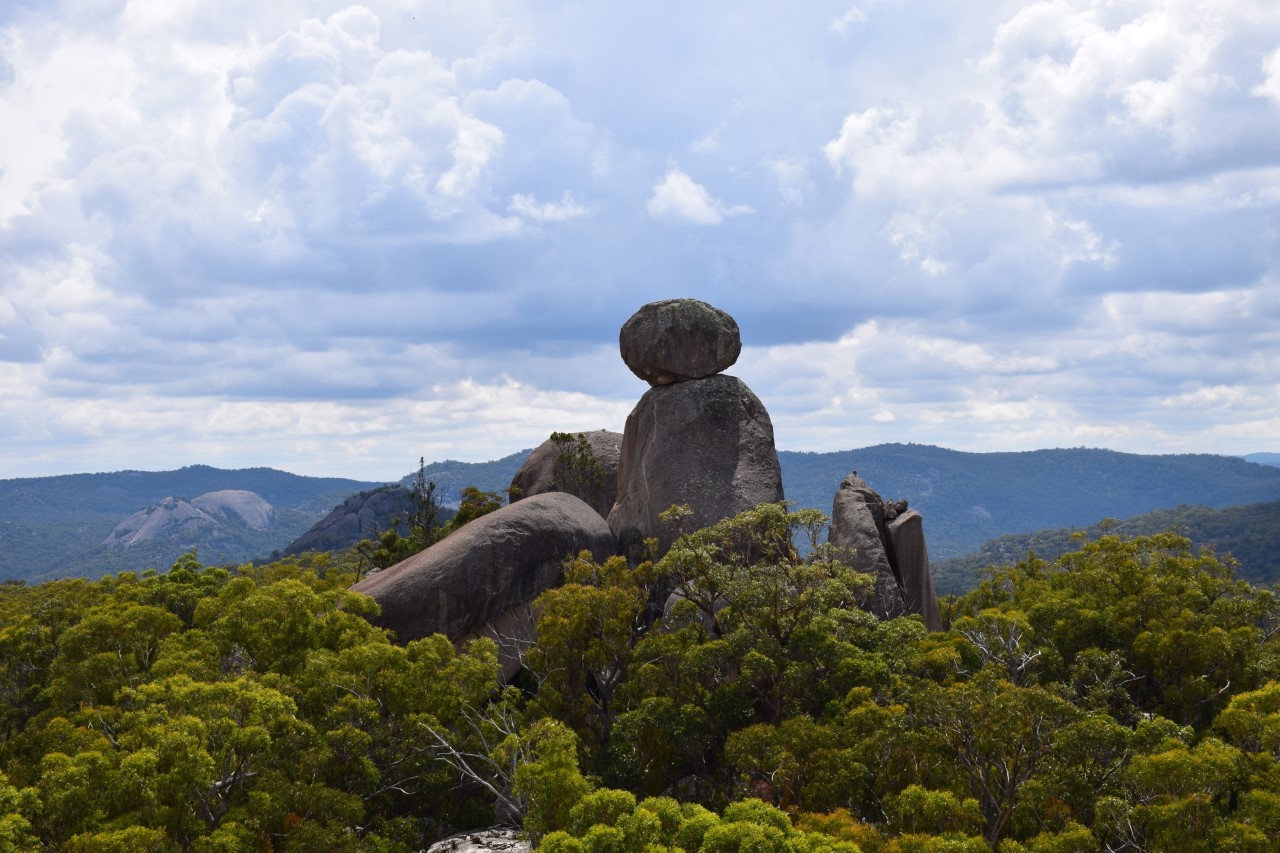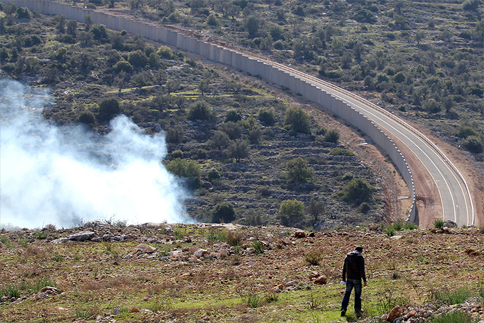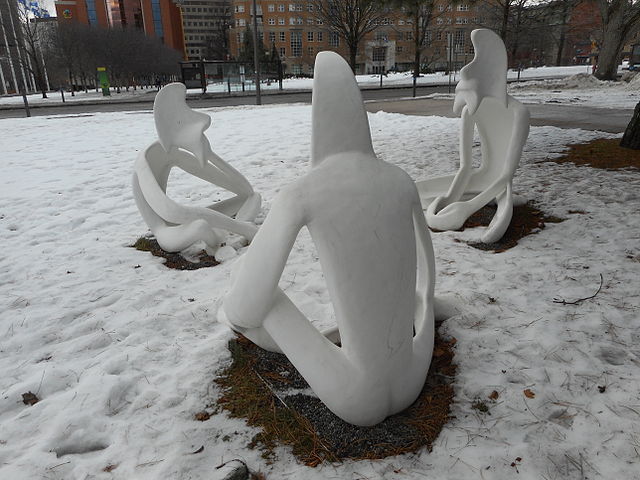Research Clusters
We are interested in leading cross-cutting research that bring the strengths of the diverse research in our School together to ask innovative and interesting questions about the world. We encourage research collaboration through research clusters that bridge sub-fields. This facilitates the exchange of ideas, the development of new research projects, and grant applications focused on the big questions.
Visual Politics
 Images play an increasingly important role in shaping political conflicts and our understanding of them. Television, photographs, cinema and new media sources all influence how we view and approach phenomena as diverse as war, humanitarian crises, protest movements and election campaigns. Better knowledge of images is thus essential to interpreting and responding to key political problems, from peace-building to the impact of terrorist attacks and the relative neglect of poverty and famines. Add to this that visual art is an increasingly significant medium for negotiating the politics of cultural difference in an increasingly globalized world.
Images play an increasingly important role in shaping political conflicts and our understanding of them. Television, photographs, cinema and new media sources all influence how we view and approach phenomena as diverse as war, humanitarian crises, protest movements and election campaigns. Better knowledge of images is thus essential to interpreting and responding to key political problems, from peace-building to the impact of terrorist attacks and the relative neglect of poverty and famines. Add to this that visual art is an increasingly significant medium for negotiating the politics of cultural difference in an increasingly globalized world.
The Visual Politics Program has been running at UQ for over a decade and has been supported by strategic grants from the Faculty of Humanities and Social Sciences. Bringing together several dozen scholars from across the University, the Program promotes collaborative research and grant applications. It has hosted over 50 lectures, seminars, master classes and workshops. Click here for more information.
Anthropocene Politics
 The mooted arrival of the ‘Anthropocene’ geological era points to the role of humanity as a force shaping earth system functions. We have become a planetary force. This research cluster draws together researchers with an interest in a range of dimensions of the politics of making sense of and responding to this reality and in particular the ecological crisis associated with it. This cluster is trans-disciplinary and multi-institutional in membership and focus, building on expertise in POLSIS but also insights from other corners of the Institution and the academy. We have hosted a series of papers, roundtables and a major (APSA-funded) workshop in 2022. For more information, or to join the mailing list, contact Dr Martin Weber m.weber@uq.edu.au.
The mooted arrival of the ‘Anthropocene’ geological era points to the role of humanity as a force shaping earth system functions. We have become a planetary force. This research cluster draws together researchers with an interest in a range of dimensions of the politics of making sense of and responding to this reality and in particular the ecological crisis associated with it. This cluster is trans-disciplinary and multi-institutional in membership and focus, building on expertise in POLSIS but also insights from other corners of the Institution and the academy. We have hosted a series of papers, roundtables and a major (APSA-funded) workshop in 2022. For more information, or to join the mailing list, contact Dr Martin Weber m.weber@uq.edu.au.
Photo credit: A/Prof Matt McDonald.
Institutional Transformations
 We conceive of institutions in the broadest possible terms, as norms, rules, and decision-making procedures that shape actors, identities, expectations, and political practices. They might be formal or informal, and they may or may not have a strong organisational dimension. The cluster is concerned with how institutions, in diverse social, cultural, and political settings emerge, shape political outcomes, and transform over time. Two areas of common interest currently animate the cluster’s discussions: the relationship between institutional transformations occurring at different levels of the global system (domestic, international, and transnational), and the development of theoretical approaches drawn from constructivism and historical institutionalism.
We conceive of institutions in the broadest possible terms, as norms, rules, and decision-making procedures that shape actors, identities, expectations, and political practices. They might be formal or informal, and they may or may not have a strong organisational dimension. The cluster is concerned with how institutions, in diverse social, cultural, and political settings emerge, shape political outcomes, and transform over time. Two areas of common interest currently animate the cluster’s discussions: the relationship between institutional transformations occurring at different levels of the global system (domestic, international, and transnational), and the development of theoretical approaches drawn from constructivism and historical institutionalism.
History and Theory in International Relations
 A distinctive feature of much of the School’s research is an engagement with history to understand better the nature and evolution of contemporary political practices and institutions, and to understand the underlying dynamics of global change. There is a strong interest in the history of international thought, with excavating the historical development of key ideas and practices that shape the contemporary political imagination. Scholars in this cluster aim to contextualise past political thought in genres such as reason of state, the law of nature and nations, and political economy.
A distinctive feature of much of the School’s research is an engagement with history to understand better the nature and evolution of contemporary political practices and institutions, and to understand the underlying dynamics of global change. There is a strong interest in the history of international thought, with excavating the historical development of key ideas and practices that shape the contemporary political imagination. Scholars in this cluster aim to contextualise past political thought in genres such as reason of state, the law of nature and nations, and political economy.
These engagements with history have led back to questions of theory, as the study of history in world politics raises challenging questions about the relationship between concepts and empirics, about the nature and limits of interpretation, about hegemony and Eurocentrism, about the role of theory in the reading of history and the role of history in theory-building.
Peace and Conflict Studies

The multidisciplinary study of peace and conflict embraces diverse theoretical approaches and is often closely linked with practice. Studying peace and conflict includes understanding and devising ways of responding to varied causes of conflict from local to global scales. This may involve examining institutional responses to violence, assessing the role of media and social media in halting or heightening risks, working with CSOs and NGOs in conflict regions, assessing the impacts of long-term peace negotiations and conflict transition processes, investigating the gendered experience of conflict and conflict transition scenarios, or analysing and contributing to peacebuilding and conflict resolution efforts. Our study of peace and conflict may see us engaging with United Nations responses to conflict, international peacebuilding and humanitarian interventions, international or national peace processes, military and sub-national militia conflict activity, national processes of transitional justice, or grassroots conflict mediation and peacebuilding through the deployment of local and Indigenous knowledges. In sum, the study of peace and conflict is broad in scope and open to many voices and ideas.
Photo Credit: Jeangagnon
https://commons.wikimedia.org/wiki/File:Dispute_philosophique_02.jpg
